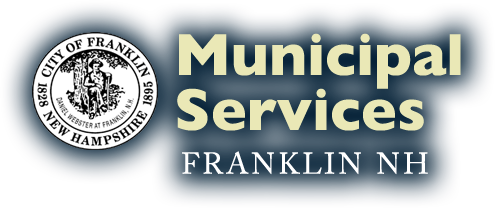Sanitary Sewer Division
Duties:
The Municipal Services Department operates and maintains the sanitary sewer system and performs repairs to City sewer lines when needed. Approximately two-thirds of City streets have sanitary sewer available. Effluent is received and treated by the Winnipesaukee River Basin Treatment Plant.
GREENWorks
Ideas for a Cleaner Environment
A publication of the New Hampshire Department of Environmental Services, Concord, NH (603) 271-3710
September 2020
‘Flushable’: We Don’t Think It Means What You Think It Means
We have used this space more than once over the years to let readers know “What’s Flushable” and what isn’t (hint: it’s toilet paper and human waste), because proper flushing is imperative for maintaining your septic system as well as municipal sewer systems and wastewater treatment plants. Among the many odd things people try to flush down the drain, the main, nasty culprit is the so-called “flushable wipe.”
And now it’s not just bathroom wipes we have to contend with; we are seeing more and more cleaning wipes claiming to be “flushable,” such as multi-surface wipes. Beware: If you believe the packaging, you may find a bigger mess than you started with. Those so-called “flushable” wipes, designed to clean with convenience, could wreak havoc right below your feet.
While it is true these products may disappear from your toilet bowl after you flush, they can still cause a problem for your septic system and/or sewer line. They can combine with other fats, oils and greases, and then clog pipes and pumps causing the sewer or septic to back up into your home. Not only will this create a mess you don’t want to clean, it will also cost you. An infamous example of this type of back-up is the “Fatberg” discovered in a London sewer, and similar discoveries are also taking place in the United States.
Some wipes that aren’t labeled as flushable still state that the product will break up after flushing, but none will break down enough. According to GreenAmerica.org, a study out of Canada (released in April 2019) tested 101 wipes on the market for flushability and not a single one passed. There are no restrictions on companies labeling their products as “flushable,” so consumers need to know what will happen if they do flush the wipes. In the wastewater world, we like to say that you should only flush the three P’s; pee, poop and paper. Your pipes and your plumber will thank you.
If using these wipes is necessary, please throw them in the trash. Better yet, look into more sustainable options for surface cleaning in your home. It may not be as quick and easy, but using reusable cloths and nontoxic cleaners are an excellent alternative; you can even use old T-shirts and towels cut into squares. Keep a bucket under your sink to store used cloths until laundry day, then wash and repeat!
Thanks,
Jana Ford
Communications Specialist
Public Information and Permitting
New Hampshire Department of Environmental Services
29 Hazen Drive, PO Box 95
Concord, NH 03302-0095
(603) 271-8332
des.nh.gov

